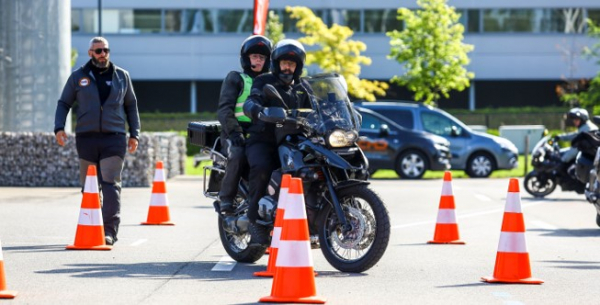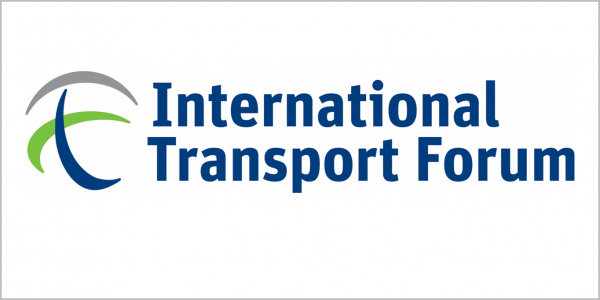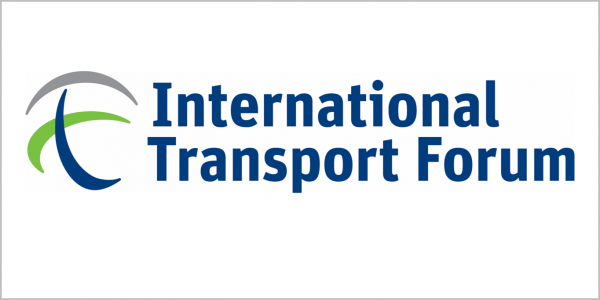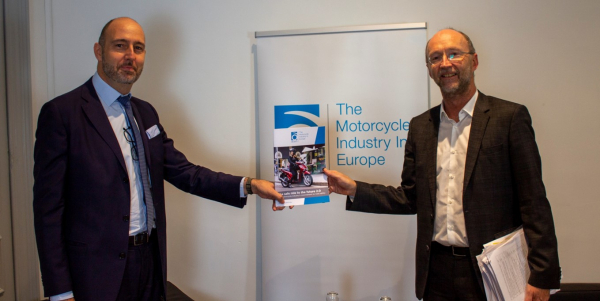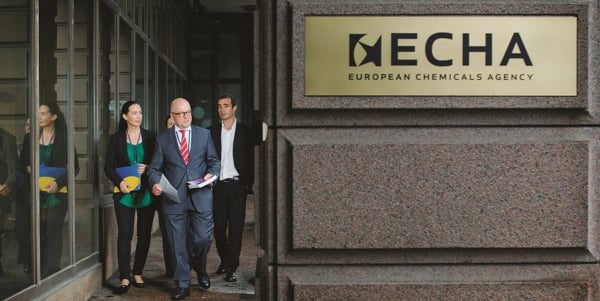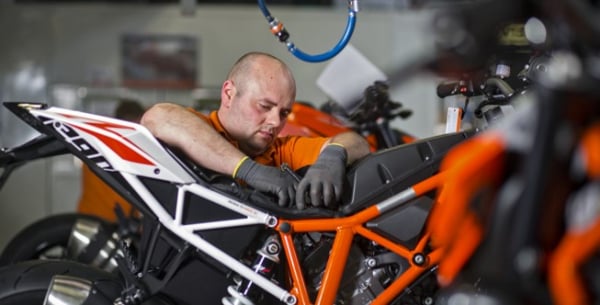Today five new motorcycle training programmes, in Italy, Cyprus, Greece and Portugal, were awarded the European Motorcycle Training Quality Label, an initiative jointly led by the European Association of Motorcycle Manufacturers (ACEM), the International Motorcycle Federation (FIM) and the German Road Safety Council (DVR).
The awarded programmes are:
“Importance of Protective Equipment - Accident Risk Assessment - Riding Skills Development”, a programme offered by the Cyprus Motorcycles Federation
“Advice on Advanced Riding - E.Q.L.” a programme offered by the Hellenic Motorcycle Institute MOTOTHESIS
“Safe Driving Course” and “Advanced Safe Driving Course”, two programmes offered by the Italian Motorcyclists Federation (FMI)
“Ride safer - Motorcycle training”, a programme offered by the PRP (Prevenção Rodoviária Portuguesa), the Portuguese association for the prevention of road accidents
These training programmes have received the Provisional European Motorcycle Training Quality Label, which will be valid for a period of 12 months. This Label certifies that the above-mentioned training programmes are of high quality as well as road safety-oriented based on the programme screening and initial assessment. An on-site evaluation by DVR safety experts will take place as soon as the COVID-19 situation allows it.
Quote
Antonio Perlot, Secretary General of the European Association of Motorcycle Manufacturers (ACEM), said:
“The Label is not only part of the motorcycle industry’s forward-looking safety strategy but also an excellent example of how cooperation between industry players, NGOs, motorcycle trainers and users’ organisations can deliver positive results in motorcycle safety. The European Motorcycle Training Quality Label has been strongly supported by the European Commissioner for Transport Adina Vălean and the European Coordinator for Road Safety Matthew Baldwin.”
Julia Fohmann, Spokesperson of the German Road Safety Council (DVR), said:
“We are glad that new training programmes are joining the network of excellence of high-quality safety training providers in Europe. The European Motorcycle Training Quality Label aims to encourage riders to undergo voluntary safety training on a regular basis. This motivates us to continue working every day to make Europe’s roads safer”.
Damiano Zamana, Deputy CEO of the International Motorcycling Federation (FIM), said:
“The FIM considers that life-long training is essential to improve the safety of motorcyclists. Having certified programmes delivering high-quality, post-licence, training contents is one of the objectives of the FIM Strategy 2024. We are pleased to see that our members, in Italy and Cyprus, are actively delivering training programs. At the same time, in Portugal and Greece, the cooperation between the awardees and our members is an example of best practices in support of riders’ safety. The FIM will continue supporting high-quality training for all motorcyclists”.
Press contact
For further information please contact:
Ilaria Balloni. ACEM communications assistant
E.
P. +32 22 30 97 32
Documents available to download
Media
Example of motorcycle safety programme - HONDA Safety Institute [JPG]
Example of motorcycle safety programme - BMW [JPG]
Example of motorcycle safety programmes - "Ready to Ride" by VSV [JPG]

